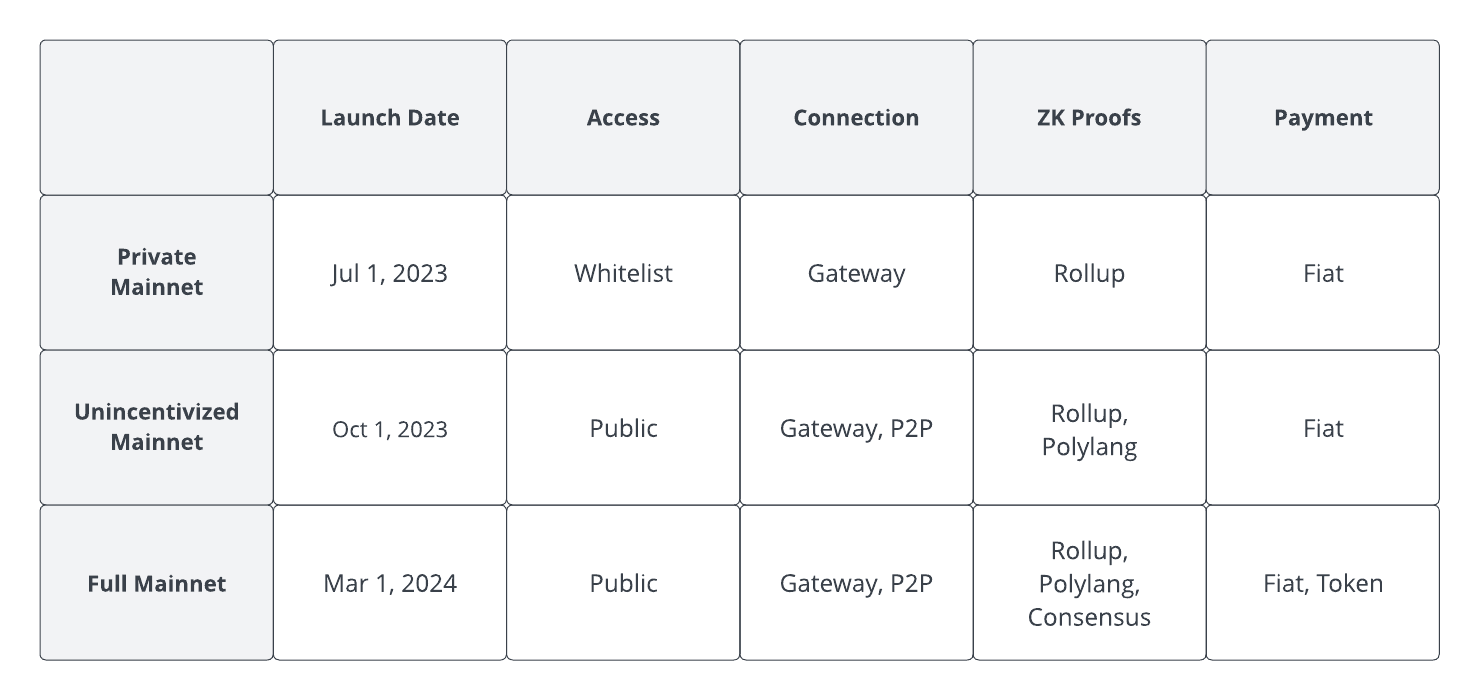Roadmap 2023
HC

Calum Moore
•
May 17, 2023
Overview

Private Mainnet will be released on July 1, 2023 on a private whitelist basis using a gateway connection, publishing a zk proof of the rollup and payment will be via fiat.
Unincentivized Mainnet will be publicly released on October 1, 2023. It will add a decentralized peer to peer interface to the network, publish proofs for the rollup and Polylang functions and payment will be via fiat.
Full Mainnet will be publicly launched on March 1, 2024 with continued gateway support and peer to peer interface. It will introduce a zk proof for consensus along with the rollup and Polylang functions. Payment will be accepted via fiat and token.
Details
Access
Private Mainnet customers will be whitelisted based on use-case and engagement with the Polybase team. Please reach out to the team if you are interested in building or integrating production software with Polybase.
Connection
This is how clients connect to the Polybase network. During Private Mainnet we will proxy connections through the Polybase Gateway for 2 main reasons:
Faster protocol development and iteration
Maintain backward compatibility without requiring client updates
The Polybase Gateway will be maintained indefinitely by the Polybase team. It will be used for customers who wish to continue using fiat-based payments.
ZK Proofs
Private Mainnet will contain mechanisms to prove that records returned from the network are contained within the Merkle root hash that is publicly posted. This allows users to verify that the data they receive is both from the database and has been added there according to the collection permission rules — a feature no other database has achieved.
Unincentivized Mainnet will add proofs for Polylang functions. This allows users to verify that individual function calls have been executed properly. It also allows users to publicly prove attributes about private data — a powerful feature for privacy preservation and data control.
Full Mainnet will add proofs for consensus and other systems in the Polybase network. This allows the full state of the system to be verified by just verifying one proof. This enables a robust and secure network to be built without the need for a large number of validators.

